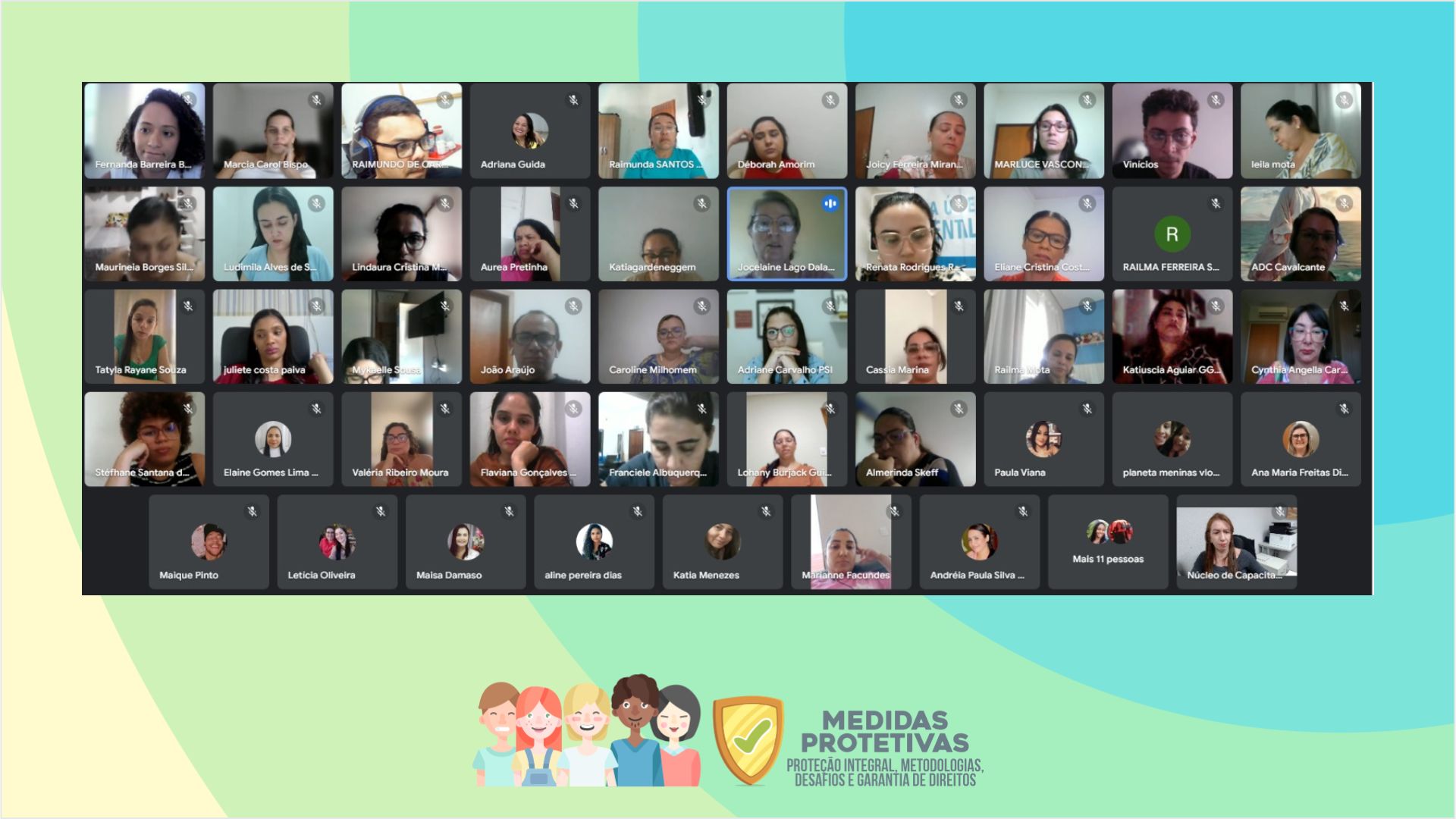
On Tuesday afternoon (September 17th), facilitators Ivan Ferreira da Silva, Elma Alves Garcia Lopes and Sabrina D' Lizandro Timóteo de Sousa Freitas began the activities of the course on “Protective Measures: integral protection, methodologies, challenges and guarantee of rights” for more than sixty civil servers and professionals with degrees in Psychology, Social Work and/or Pedagogy, accredited to work in the Management Group of Multidisciplinary Teams (GGEM) of the Judiciary of the State of Tocantins, and involved in the Institutional and Family Foster Care Program, sponsorship, new paths.
The training has a workload of 80 hours and it will continue at a distance until November 18th. The course aims to train those accredited to develop theoretical, legal, methodological and operational parameters in the field of Childhood and Youth, violation of rights and fundamental rights, within the scope of the Court of Justice of the State of Tocantins (TJTO).
The initiative, divided into five modules, will address historical and regulatory issues related to the protection of children and adolescents. Among the main points is the National Plan for Family and Community Coexistence (PNCFC), which includes background, legal framework, conceptual, situational, and guidelines under review.
The course will also focus on the Statute of the Child and Adolescent (ECA), protection measures and the process of family removal, highlighting the exceptionality and provisionality of these actions. The different types of foster care in Brazil will be explored, as well as the importance of listening to the voice of children and adolescents as subjects of rights and sensitive listening techniques. Other fundamental issues include care for families in situations of vulnerability, the Individual Care Plan (PIA), the right to family and community life, sponsorship and its modalities, as well as the role of the Protection Network in providing support and social accompaniment to these families in order to minimize or overcome vulnerabilities.




